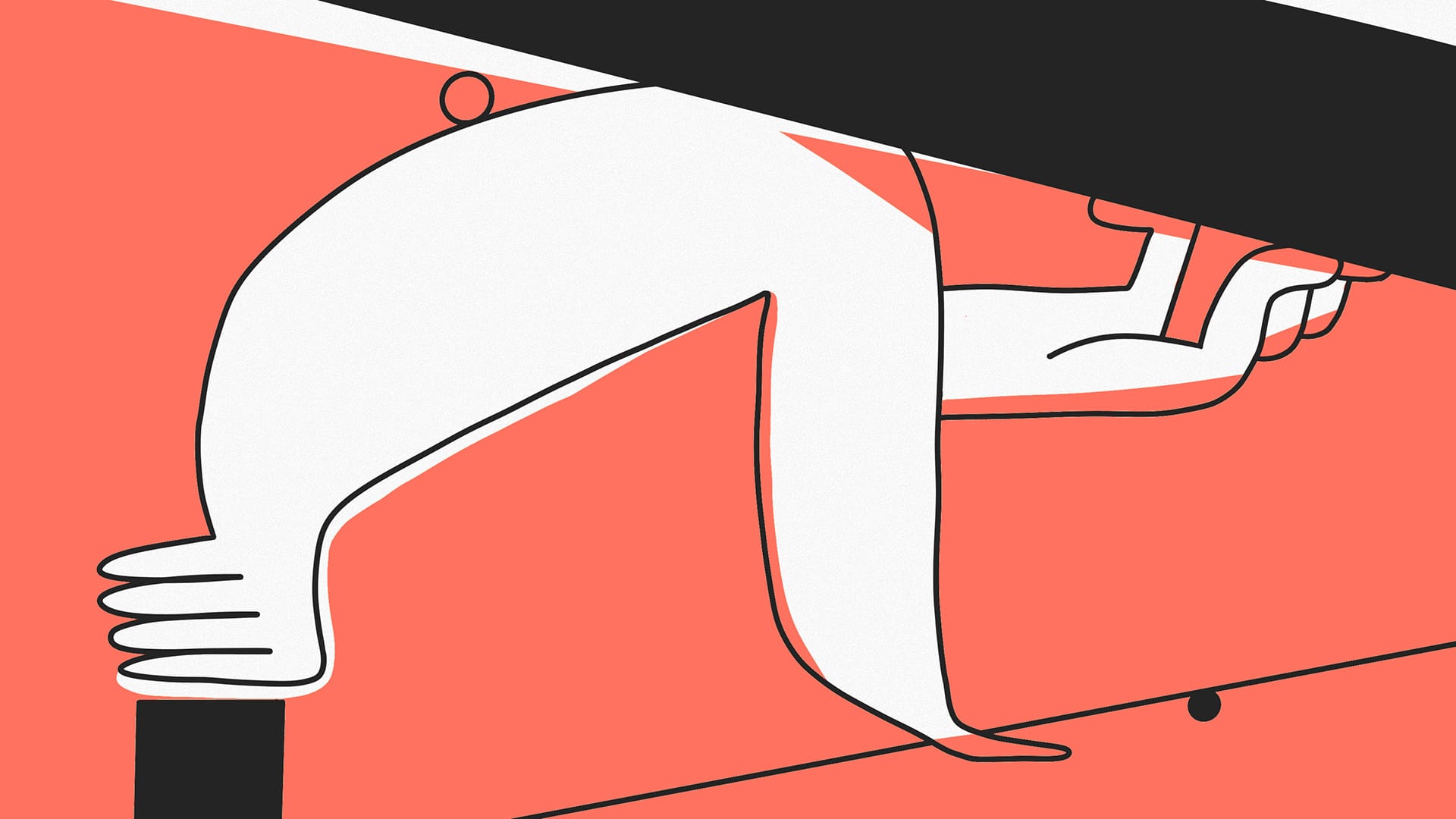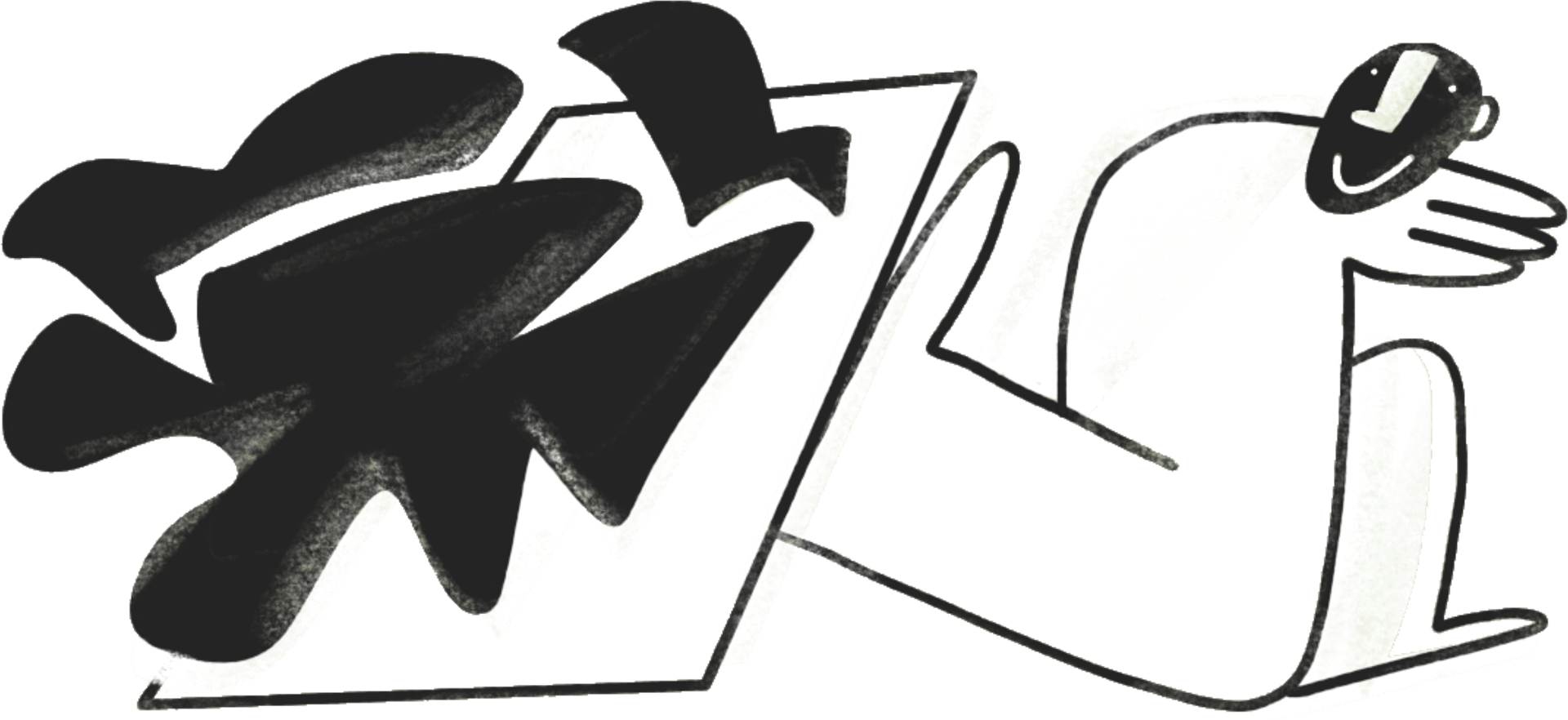Recovery and Coming Back to Work
If you’re wondering how to ignore stress, the answer would be “It’s impossible — and not always necessary.” A stress reaction is natural, and it’s what makes us human. We talked about this with psychologist Aleksandra Zinkova and shared our own experiences of how specific recommendations worked for us.
Repeating stress is often thought to be a straightforward route to apathy. However, this route may take sharp and unexpected turns. This year’s events in Ukraine have shocked everyone, but they’ve also prompted people to mobilize.
In fact, this is precisely when productivity on the PandaDoc team increased significantly. For example, 80% of the HVT Sales team — many of whom were displaced due to the war — hit over 100% of their quota while driving to Poland or finding accommodation in Portugal. This was incredible!
Surprisingly, such an effect is a normal reaction to initial stress, for at this time, we stay more focused and make quicker decisions. However, improved productivity may occur at the expense of working more than we should while under stress. Even if we work “usual” hours, this may be too much under such conditions.

Client-centered psychotherapist and member of USP (Ukrainian Union of Psychotherapists) specializing in crisis psychology and stress recovery.
However, as time goes by and recurring stress builds, you may easily slip into apathy.

Why? Because the shocking news that bothered you before could begin to lose its effect, and you may just end up skipping the news altogether. On the other hand, daily routines, such as “Where's my other sock?”, may make you really annoyed. These imbalances are bound to happen as long as you become used to stressful events.
When things go wrong, it’s essential to care about what you can do right. This often means work. It’s a paradox of normality where a job can serve as a pillar of sanity amid a challenging world.
Zinkova notes that to maintain both productivity and strong well-being, it’s important to take care of your basic physical and emotional needs, as well as knowing your own recovery methods. PandaDoc recently held a series of mental health sessions and summarized these recommendations.
Psychologist’s advice
#1 Know your physical needs
Stress is a psycho-physiological response to unusual events, and it’s a normal reaction that helps us adapt. So it may be OK to feel stressed. What’s important is knowing how to cope with stress and not let it take over our actions.
- Under stress, you can lose the ability to sleep properly. Keep these guidelines in mind to help yourself sleep well:
a. Try to not read the news 1-2 hours before going to sleep
b. Dim bright lights in the evening to not disturb melatonin production - Stress also reduces the need to eat. Your body may experience an unexpected sugar deficit, and you might long for unhealthy food, which could lead to digestive problems. So if you keep forgetting to eat, set a reminder in your calendar.
- Exercise is important, so be sure to recharge your core physiological processes and give yourself some fresh air. Even a simple walk will help your body release tension.
- Coping with acute stress starts with a deep breath in, and another deep breath out.

Strong emotions impact your body. So when you’re under stress, remember that you’re human and your actions are more than just a routine.

#2 Know your emotional needs
One blessing and curse of the human mind is how it can create memories of what caused stress in the first place. Even if a stressful event is over, it can be difficult to overcome bad memories.
- Don’t ruminate. It’s hard sometimes, but make an effort.
- Get back to reality and use all your senses to focus on details in your surroundings.
- Look for quality socializing with people close to you.
- Help others, but not at your own expense.
- Find something you enjoy, then pursue it — whether it be gastronomic, artistic, or physical.
#3 Know how to recover
- Stop multitasking. Constant switching between notifications and actual work can exhaust you.
- Consider which time of day you’re most productive and for how long. Don’t try to maintain the same schedule as before your stressful times began.
- Limit news intake to avoid procrastination. Schedule 15 minutes for reading news, then one hour for work.
- Don’t try to control everything. Use a timer for scheduling.


Head of Global L&D
What worked for us
Alexandra’s recommendations have been a great help. The most challenging one has been to minimize reading news. Scheduling a “worry time” for my breaks and turning off notifications has brought much relief. This helps me concentrate by reducing anxiety coming from the news and the thought that I’ll miss something important. This was impossible in the first weeks of the war, but psychological exhaustion made me pull myself together.
Secondly, it’s been a time to remember that life keeps going, that I need some joy — or at least a well-cooked lunch instead of a snack.
It was hard at first to allow myself to enjoy food, watch a movie, and go to a museum as I did before.
However, switching to something other than volunteering and reading news for 1-2 hours a day has brought only good. Places such as the Kampa Museum and the National Gallery of Prague let me remember how deeply I love art and how much inspiration I get from it. I’ve learned names of modern Czech artists, and I’ve found interesting analogies in the history of places and people who have been caught up in confrontations. And I’ve taken inspiration from their strength, resistance, and patience.
Reading books (without peeking on social media) has also helped. I’ve turned off notifications, so the last things I see before sleep are peaceful stories.
Over time, I’ve felt that I’ve become more productive, so I began planning. Since the most challenging period related to evacuation is behind me, I’ve started to reconsider strategic projects, such as launching a leadership program.
Finally, I’ve slept without multiple interruptions, and I’ve felt rested the following day. I’ve gotten back to exercising and feel that regular half-hour exercises in the morning invigorate me. And I’ve become ready to help and support my friends.
Crucially, personal therapy has had exceptional value during these dark times.
It has provided an understanding of what’s happened to my colleagues and family. So it’s been beneficial both for me and those who I’ve been helping. If you feel overwhelmed, it may be the right time to ask for help and consider working with a psychologist.
Take care of yourself. Nobody else can do this.

How to Support Employees Affected by War and Crises
Once Russia invaded Ukraine in February 2022, Ukrainians needed to evacuate and work had to be replanned. Given this tragically difficult event, individuals and companies are still trying to get out of shock. Managers and HR partners keeping up with global and local news must understand that these events may shatter people who haven’t even been directly affected by the war. It’s critical to support your employees during these chaotic times. Here’s how to approach the issue.

From COVID to War: Organizing Work in Turbulent Times
If you’re wondering how to ignore stress, the answer would be «It’s impossible and not always necessary». A stress reaction is natural, and it’s what makes us humans. We talked about that to a psychologist Aleksandra Zinkova and shared our own experiences of how specific recommendations worked for us.

Recovery and Coming Back to Work
If you’re wondering how to ignore stress, the answer would be “It’s impossible — and not always necessary.” A stress reaction is natural, and it’s what makes us human. We talked about this with psychologist Aleksandra Zinkova and shared our own experiences of how specific recommendations worked for us.
